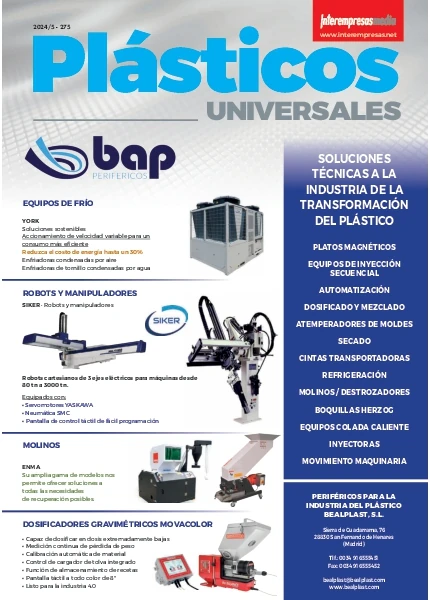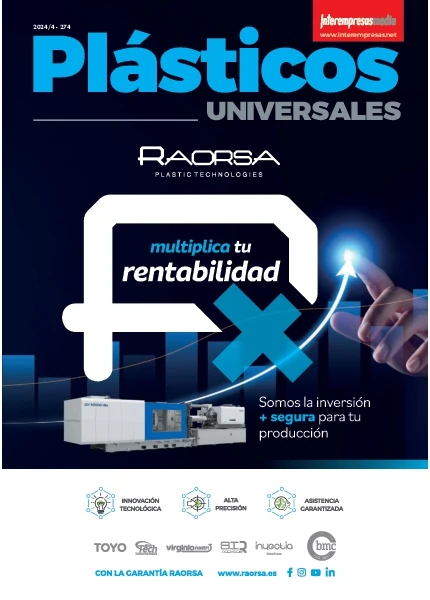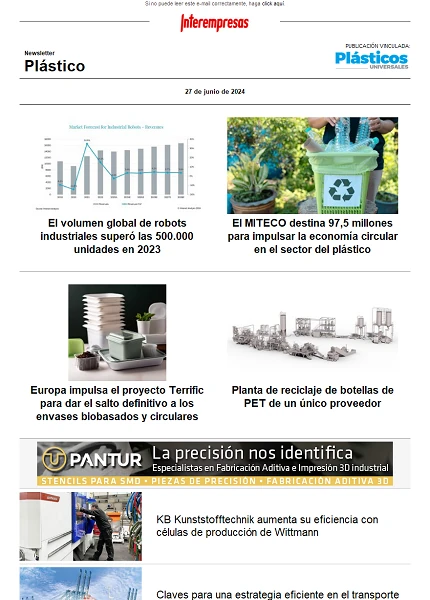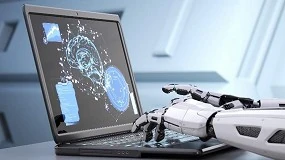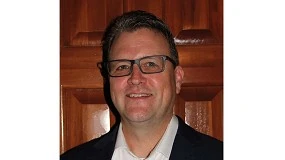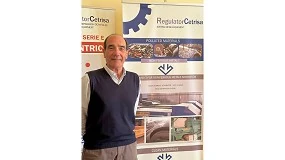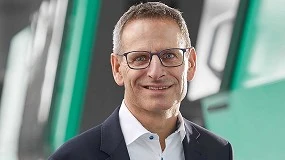Santiago Gisbert - Director General of AIJU - plastics are key in toys
Santiago Gisbert
director General of AIJU
Santiago Gisbert is the General Director of the Research Association of the industry of toy (AIJU), founded in 1958 and considered the epitome of the culture of plastics that generally live in the province Alicante. While its acronym have meanings already quoted, often it is also known by technological Institute of the toy. Not in vain has been the engine of modernization of the Spanish toy industry, thanks to its research and its educational vocation.
Spain is one of the main producers of toys, especially dolls and vehicles of imitation of life, where plastics play a fundamental role. The most important productive core of Spain is the so-called "Valley of the toy", to the North of the province of Alicante, where the technological toy Institute (AIJU) has its headquarters and helps boost the sector. "AIJU makes the research they want their partners, and as a result, the toy industry is heavily involved with the Institute," explains Santiago Gisbert, its director-general, in this interview.
What is the purpose of AIJU?
The Association of research of the industry of the toy, related and Allied (AIJU), also known as Institute of technology of the toy, is non-profit and is focused on research, development, technological innovation, increasing competitiveness and improving the quality of the products of the industrial sector of the toy.
With this vocation of service to the Spanish toy industry, AIJU has become the driving force for change in a sector that has evolved favourably towards the production of highly qualified and fully competitive products in all markets, both nationally and internationally.
Receives AIJU adequate juguetero sector support?
AIJU makes the kind of research that require their partners. And you can do, precisely because the entire Spanish juguetero sector is heavily involved with the Institute, that one thing is the result of the other.
AIJU is located in the heart of what is known as the "Valley of the toy". Promotes the achievement of its objectives this geographical proximity?
It is no accident that AIJU is located in the Valencian town of Ibi, to the North of the province of Alicante, that surrounding focuses an important part of the Spanish toy industry, with a tradition that goes back earlier in the century. This geographical proximity to the toy and auxiliary industry certainly favors the work of AIJU. At the moment, the "Valley of the toy" produced about half of the toys of Spain and exports are also of this order.
Why is such concentration in this place?
There are several reasons that justify it but that are difficult to explain. Firstly, the Valencian Community is characterized by its entrepreneurial spirit; people likes to settle on their own and take business risks. Secondly, in this area is difficult to live in the countryside, so you have to earn a living in another way. At the beginning of century formed companies working the plate. But the work of the sheet is complicated and need training; why it has always encouraged the training from private initiative and this, in turn, has led to the creation of an important industrial centre around the first sheet and now plastic toys factory.
These two features allow to explain the concentration of companies in a particular sector of activity so typical of the Valencian Community. 40 Km of Ibi, for example, is Xixona, a core specialist nougat. And a little beyond Elda, making shoes.
What volume of business moves the juguetero sector?
The Spanish production of toys is approximately 100,000 MPtas, of which exported 35 to 40 per cent of the total, to the European Union and, specifically, France. It is a rather stable level, without many ups and downs.
In what kinds of toys he emphasizes more Spain?
The dolls represent about 22% of total production. It's a market segment in which the "Valley of the toy" companies are leading, with a share of exports of 50 to 60 per cent. The production of what is known as vehicles of imitation of life, such as kitchens, carts or other household items for children is also very important. Another market segment featuring Spain is the production of educational toys, basically of cardboard.
Do you make many plastic toys?
At the end of the fifties has now started to enter the plastic toys, first pieces of little importance, as a substitute for the metal. At the moment, parts are manufactured in the vast majority of plastic, both to withstand mechanical stress such as physicists.
The trend is that metal has even less role and migrate towards the plastic. Plastics are ideal for important runs and to adjust the cost of products. Nowadays not be conceived a toy of some importance if it is not plastic.
What types of plastics are used more in toys?
A quarter of the toys are manufactured with polystyrene, both its brilliance and good finish. Polyethylene is used in one somewhat lower, between 22 and 23% percentage. 16% Of the toys are made from polypropylene. Also have important ABS and PVC, with 10% approximately every one of them.
How many partners does AIJU?
AIJU has 275 members, in their great majority, who belong to the Valencian industry. Of the total number of partners, more 60% are manufacturers of toys and almost 35% belong to industry auxiliary, between tooling workshops, suppliers of material, dye, textile, machinery and others. The remaining 5% belonging to other sectors.
According to their origin, 72% of the partners are located in the Valencian Community, 15% in Catalonia, 12.5 per cent in the rest of Spain and 0.5% abroad. In the area of Valencia, 40% come from the town of Ibi, 10% of the population of Castalla and 14 per cent of Onil.
On the other hand, AIJU happened, gradually, to provide advice and services to other industries in the area. In this sense, currently are associated more than 40% of industrial companies in the "Valley of the toy".
Who finances AIJU?
Initial investments were financed by IMPIVA and the Ministry of industry, through IPMI. Currently, AIJU revenues come in the most part, direct services and the payment of the fee of their partners. It also receives grants IMPIVA, the IMPI and the European Union.
Core subsidies come from the same sector, which is heavily involved with everything that makes AIJU. Regional aid are basic type, while the State serve to carry out projects. The aid that we receive from the European Union are used for large projects and are the way of the future expansion of AIJU.
What projects it carries out AIJU at European level?
The European Commission has approved two projects submitted by AIJU under the Esprit programme. One is the Toys-CIM and the application of new technologies in the field of CAD/CAM and rapid prototyping in the surroundings of the toy industry. The other is Virtual Toys and integration into decision-making in productive environments of the toy. The budget exceeds the 156 MPtas.
They organize specific courses of plastics?
The plastics processing industry has a very active role in the manufacture of toys, as also the of the moldistas. Why we do so much training in the field of plastics, and other more general and specific courses - as quality, CAD/CAM and mold-in which plastics also appear.
AIJU plastic specific courses they attend 60 to 70 students per year and have a duration of about 100 hours. As a novelty, this year we will give a course to the Association of plastics transformers, Alicante.
Security compliance to strict
How come the controversy of PVC in toys?
The use of PVC in toys is very small. Of the total number of PVC in Spain, 1% more or less goes to toys. But despite this small consumption, it seems that we are the target of the wrath of Greenpeace.
Greenpeace believes free because there is no scientific evidence of what this organization. Greenpeace says that there may be a step of the plasticizer used in PVC to children and is based on studies that nobody knows. Repeated in the laboratory experiments do not show any evidence of what Greenpeace, but this organization insists.
There is a range of analysis of safety of toys, that other countries and Spanish manufacturers comply to strict, included obviously those of PVC. On the other hand, there is no test procedure to determine the transfer of plasticizers. There is no evidence that there is transfer of plasticizer when its a toy of PVC. And it one day have evidence, it would have to prove that it is dangerous.
Lluis Alonso
| Greenpeace believes free because there is no scientific evidence that PVC toys are harmful to children. |


